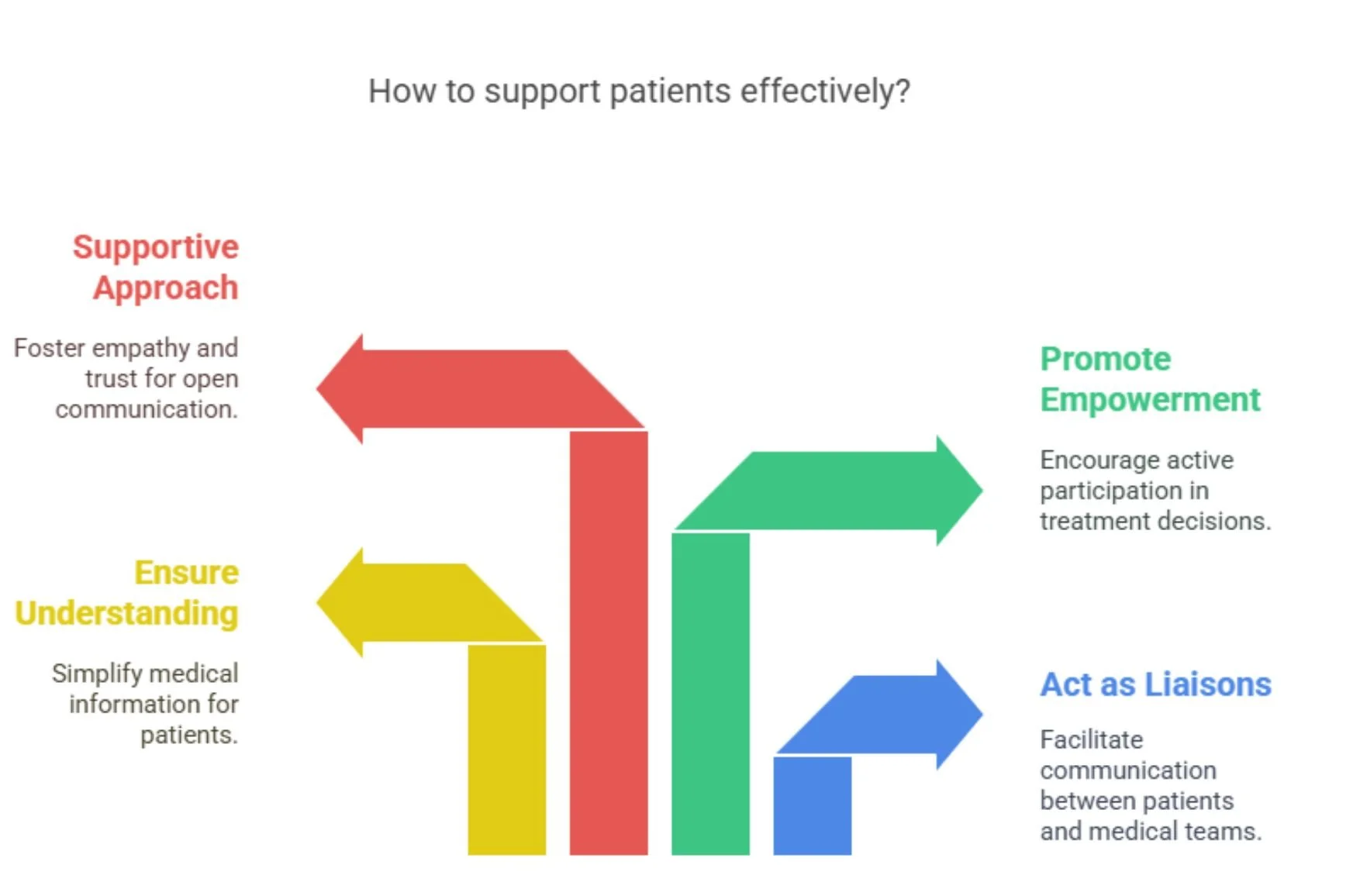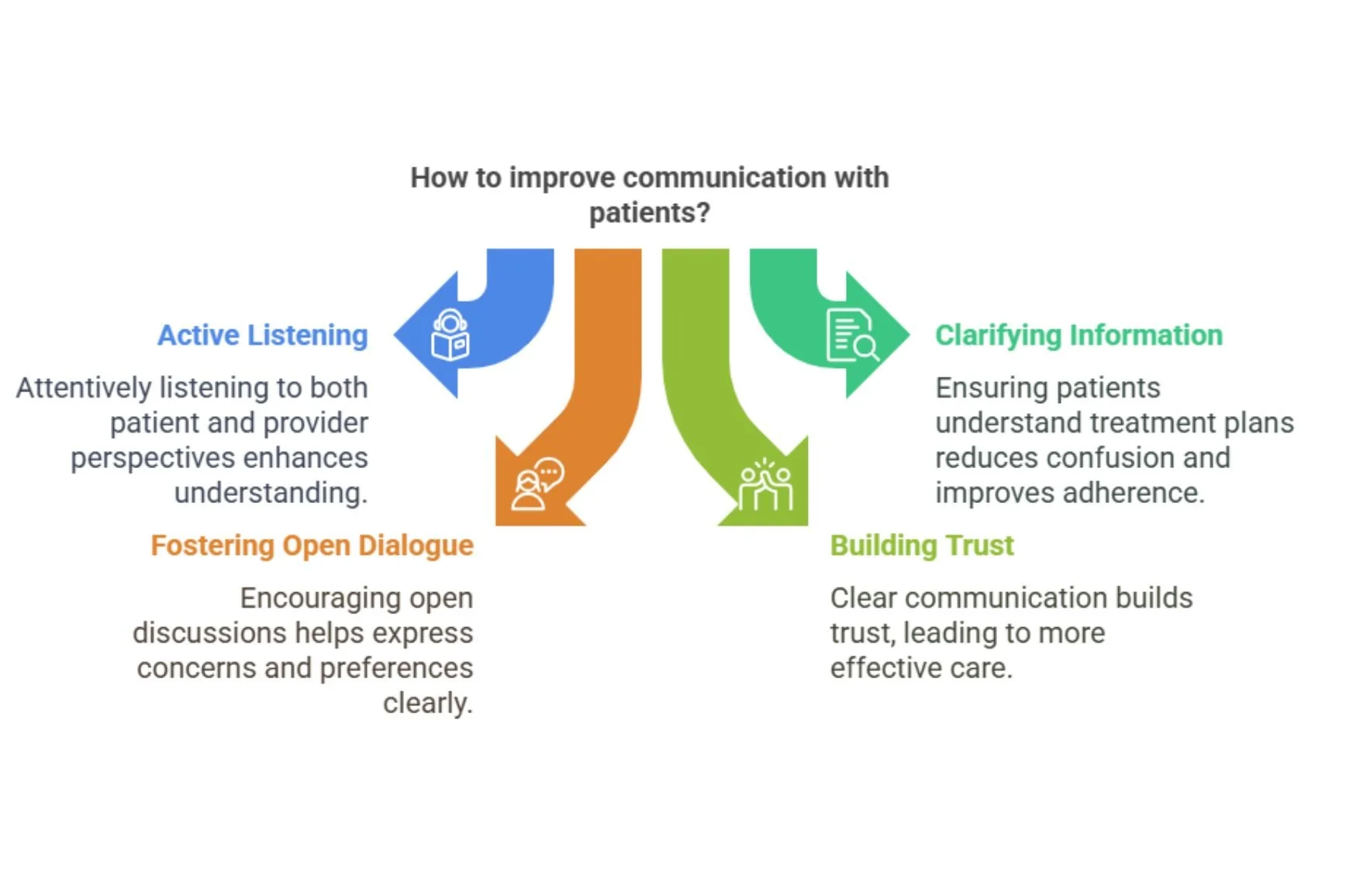The Role of Health Coaches in Patient Advocacy
In 2025, health coaches are more vital than ever in the evolving healthcare landscape. As trusted professionals, they play a key role in helping patients navigate complex medical systems, communicate effectively with healthcare providers, and take control of their own wellness journeys. Let’s explore how health coaches champion patient advocacy and why their role is crucial to modern care.
What Is Patient Advocacy?
Patient advocacy involves representing and protecting patients' interests within the healthcare system. Health coaches ensure that patients’ voices are heard and their needs are understood by healthcare professionals.
Act as Liaisons: Health coaches help communicate a patient’s concerns and preferences to medical teams.
Ensure Understanding: They simplify medical jargon and help patients understand their diagnosis, treatment options, and medications.
Promote Patient Empowerment: Health coaches encourage patients to ask the right questions and participate actively in their treatment decisions.
Supportive Approach: By fostering empathy and trust, health coaches create an environment where patients feel comfortable expressing concerns and making decisions about their health.
Educating and Empowering Patients
Many patients struggle to understand medical terminology and complex treatment plans. Health coaches play a crucial role in simplifying this information and empowering patients to make informed decisions.
Simplifying Complex Information: Coaches break down complicated medical terms into easy-to-understand language.
Providing Evidence-Based Information: They share trusted resources and explain treatment options based on current research and evidence.
Encouraging Active Participation: Coaches teach patients how to advocate for themselves during medical appointments, making them feel more confident in their healthcare decisions.
Promoting Confidence: By fostering self-advocacy, health coaches enable patients to take an active role in their health journey.
Bridging the Communication Gap
Effective communication between patients and healthcare providers is often a challenge, but health coaches help close this gap.
Active Listening: Coaches listen attentively to both the patient's and healthcare provider’s perspectives.
Clarifying Information: They ensure patients fully understand their treatment plans and medical advice.
Fostering Open Dialogue: Coaches encourage open discussions, helping both patients and providers express their concerns and preferences clearly.
Building Trust: Clear communication builds trust, reduces misunderstandings, and leads to more effective care.
Personalized Support
Every patient is unique, and health coaches recognize the importance of individualized care plans. They provide tailored support based on each patient’s specific needs, goals, and challenges.
Customized Health Plans: Coaches develop personalized plans that align with a patient’s health objectives, lifestyle, and limitations.
Emotional Support: They offer ongoing emotional support to help patients cope with the stresses of managing their health.
Tracking Progress: Health coaches monitor patients' progress and make adjustments to their care plans as needed.
Building Trust and Engagement: The one-on-one nature of coaching helps patients feel heard, increasing their commitment to the plan and improving adherence.
Promoting Holistic Wellness
Health coaches don’t focus solely on physical symptoms but take a comprehensive approach to health and well-being.
Mind-Body Connection: They emphasize the importance of mental and emotional health, promoting stress management and emotional resilience.
Nutritional Guidance: Coaches provide advice on healthy eating habits and support patients in making sustainable dietary changes.
Exercise and Movement: Health coaches help patients develop fitness routines tailored to their capabilities.
Social Support: Coaches encourage strengthening personal relationships and community connections to promote mental well-being.
Advocating for Patient Rights
In 2025, health coaches play an increasingly critical role in ensuring that patients receive fair and equitable care.
Navigating Insurance Claims: Health coaches assist patients in understanding insurance policies and advocating for necessary treatments.
Fighting Discrimination: They help patients address discriminatory practices within healthcare settings.
Ensuring Informed Consent: Coaches ensure that patients fully understand treatment options before consenting.
Support for Systemic Issues: Health coaches can raise awareness about systemic healthcare inequities and advocate for patient rights at a larger scale.
Collaborating with Healthcare Providers
Health coaches work closely with a multidisciplinary team to ensure that patients receive holistic, coordinated care.
Team Collaboration: Health coaches often collaborate with doctors, nurses, dietitians, and specialists to create a well-rounded treatment plan.
Feedback Sharing: They share insights from the patient, such as adherence to a treatment plan or emotional challenges, helping providers make informed decisions.
Consistency in Care: By maintaining communication between healthcare providers, coaches help ensure that patients receive consistent and comprehensive care.
Enhanced Patient Experience: Working as part of an integrated care team results in better patient outcomes and an improved healthcare experience.
Building Trust
Trust is a cornerstone of healthcare. Health coaches play a pivotal role in fostering a trusting relationship between patients and their healthcare team.
Empathy and Transparency: Health coaches offer a compassionate, non-judgmental space for patients to express their concerns and challenges.
Regular Follow-Ups: Coaches maintain consistent contact, providing patients with ongoing support and encouragement.
Patient-Centered Care: When patients feel supported and understood, they are more likely to stick to their treatment plans and feel empowered to manage their health.
The Future of Health Coaching in 2025
As healthcare continues to evolve, the role of health coaches will only expand. In 2025, technology plays a significant part in making health coaching more accessible and efficient.
Virtual Coaching: Health coaches can now provide support remotely, making it easier for patients to access care no matter their location.
Wearable Health Tech: Coaches can utilize wearable devices to track patients' health data, providing more personalized and accurate guidance.
Data-Driven Approaches: With access to personalized health data, health coaches can design more effective, tailored plans that improve health outcomes.
Leading Proactive Care: As healthcare shifts toward preventive measures, health coaches will be at the forefront, empowering patients to take charge of their health before issues arise.
6 Lesser-Known Facts About Health Coaches in Advocacy
They often detect early warning signs of burnout or mental health issues that providers may miss.
They’re trained in cultural competency, enabling them to work effectively across diverse communities.
Health coaches aren’t just for chronic conditions—they also support preventive care and wellness planning.
Many coaches work in corporate wellness programs, promoting employee health and reducing company healthcare costs.
Health coaches use motivational interviewing techniques, which improve patient adherence to treatment plans.
They may partner with social workers and legal advocates to address broader social determinants of health.
At ANHCO (American Nationa
l Health Coaches Organization), we recognize the importance of health coaches in fostering a patient-centered healthcare system. ANHCO is committed to advancing the role of health coaches by providing resources, accreditation, and education. We believe that well-trained health coaches are integral to improving healthcare delivery, enhancing patient satisfaction, and supporting long-term wellness. By empowering health coaches, ANHCO aims to ensure that patients receive the highest level of care and advocacy.
Ready to become a certified health coach and make a difference in patient advocacy? Enroll in ANHCO's Health Coach Certification Program today and start your journey toward a rewarding career in healthcare!
FAQS
-
Patient advocacy in health coaching refers to supporting, empowering, and guiding clients as they navigate healthcare systems, make informed decisions, and communicate effectively with medical professionals.
-
Health coaches advocate by helping clients understand diagnoses, explore treatment options, ask the right questions, and clarify goals so they can confidently participate in their own care.
-
No, health coaches do not make medical decisions or give clinical advice. Their role is to support and educate, ensuring clients are informed and prepared to discuss care plans with their healthcare providers.
-
Advocacy enhances the patient experience by promoting better communication, increased confidence, and active participation, which can lead to better health outcomes and greater satisfaction with care.
-
Yes, health coaches often help clients find appropriate services, schedule appointments, and overcome barriers such as language, health literacy, or transportation, which improves access to care.
-
In many settings, certified health coaches collaborate with medical teams to reinforce treatment plans, support behavior change, and ensure clients follow through with recommended care.




